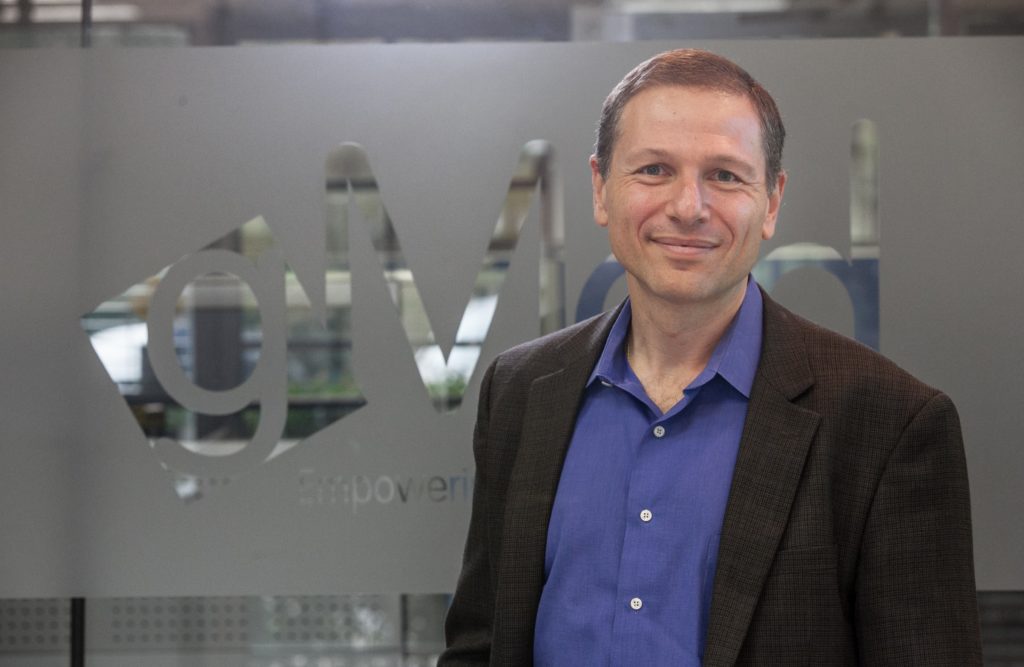
When Joe Rubinsztain started gMed, he was admittedly young—only a few years removed from medical school— and he just didn’t understand leadership that well.
“I needed to be abreast of everything and understand everything and control everything. And I needed to hire people that would do as I requested. As the company got bigger, understood that in order to grow a big company, you needed to bring in people much better than you, who knew very well what they were doing,” Rubinsztain says.
This was one of three lessons he learned in his 20 years in running gMed, a gastroenterology electronic health record company. The second was to hire people compatible with your goals as an organization. Third, respect the culture of the corporation. Rubinsztain is taking the lessons he learned at gMed, which was acquired by Modernizing Medicine in 2015, for his next act and current gig as CEO of ChronWell.
ChronWell has created an artificial intelligence-backed platform for the workers’ compensation insurance industry. The service helps a worker injured on the job by recommending self-care, on-site care or a health care facility, it follows up with the worker and manages the claim.
Chief Executive spoke to Rubinsztain about why he’s investing in artificial intelligence at ChronWell, and speaks about the trends of consumer-driven healthcare, the lack of risks taken by the insurance industry, and non-traditional consolidation between payers and providers. Below are excerpts from this conversation.
AI is pretty hot nowadays. Patient empowerment is pretty hot nowadays. You are capitalizing off two of the big trends that we’re seeing in healthcare. What opportunities do you guys see in the marketplace?
Opportunities we saw were how can you provide excellent service and contain the cost of a case by doing what’s right with the patients? And the reason we saw that opportunity was because if you look at workers’ compensation, the majority of the decisions are made by the adjuster. And adjusters have a very, very different level of skill and they’re constantly overloaded. So, there were a lot of mistakes in the compensation area. Plus, given the fact that there was very little attention to patient satisfaction and service [in this area], there was a lot of litigation there. And so if you mix in the efficiency of technology and artificial intelligence to automate some of those tools, and a great culture of service, you start getting something really worthwhile.
[We wanted to answer the question] can you provide great service to the injured worker? Can you provide best practices to deliver treatment, and make sure that those cases don’t escalate where they needed to be and don’t become litigated? That’s exactly the opportunity we saw.
“Always hire better than yourself. If you don’t hire somebody better than you, you will never be able to grow.”
Why is AI key to making this technology work?
There’s a lot of hype around AI and there’s a lot of fiction contained in that hype as well. But when you cut down to it, AI, so far, is good for two things, making very complex calculations and simplifying the human-computer interaction. Meaning, it’s been very well applied in natural language processing. And you’re seeing that with Google Assistant and with Siri and with Amazon Alexa and others like that. And there’s a lot of AI applied within the context of voice and intonations of voice. And so that’s part of natural language processing, speech to text, text to speech, written language analysis. Those things are really critical to us to be able to interact effectively with an injured worker who may be texting us.
If you look at the injured worker, there are younger ones and there are older ones. The younger generation prefers text. So using artificial intelligence, you can build a ton of tools that allow you to interact using, for instance, a chatbot, , which is backed up by humans if it doesn’t do a good job. But that chatbot is going to be powered by artificial intelligence understanding what’s going on. That is on the natural language processing side, meaning understanding language.
The other side of it is performing complex calculations, which includes machine learning. And machine learning is essentially the ability to learn out of a ton of existing cases. As we learn from our own interactions with our users, we can understand what is it that they’re looking for and perfect all our interaction systems to help them better. Or we can analyze existing cases and understand how those cases went against best practices (or not).







